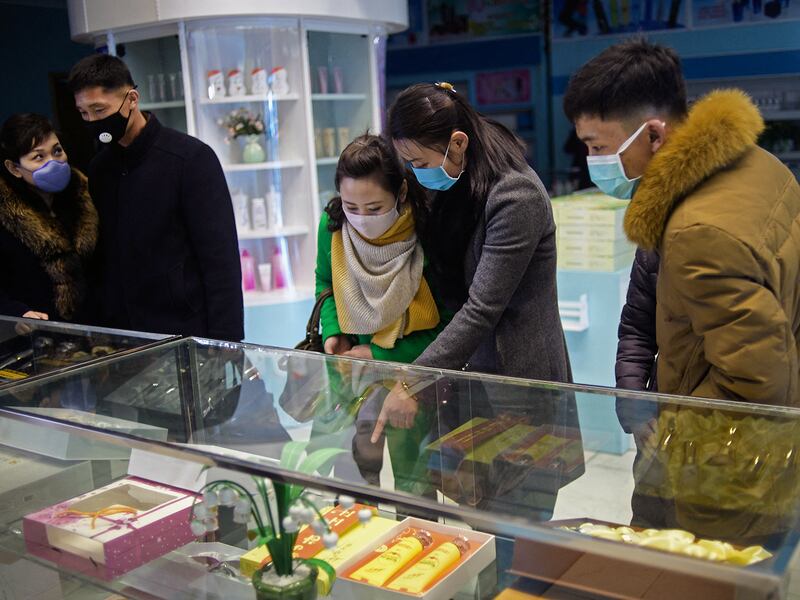Read a version of this story in Korean.
Wet wipes, a status symbol among North Korean women, are slowly becoming more available to ordinary people.
Starting about 10 years ago, South Korean and Chinese-made wet wipes, imported via China, showed up in department stores in the capital Pyongyang. They were expensive, so only the wealthy elite could afford them.
But recently, a domestic paper company has begun making them, and they are being sold at industrial goods stores, a resident of South Pyongan province told RFA Korean on condition of anonymity for security reasons.
That’s made them more available -- but they are still considered a luxury item, she said.
“This product can be used to wipe your hands without water,” the woman said. “It is recognized as a symbol of sophistication among the residents.”

Domestically made wet wipes began appearing in smaller cities including Chongju in the second half of the year, and they are seen being used more frequently in public, a resident of North Pyongan province said.
These days, young women like to show off that they can afford wet wipes when they go on dates, she said.
“If a woman pulls out a wet wipe in front of the man, she’s signaling how civilized and sophisticated she is.”
Industrial priorities
North Korea’s development policies place higher priority on heavy industry, meaning that more consumer-oriented industries have taken a back seat.
For example, rather than toothpaste, people clean their teeth with salt. Instead of hand soap, they use lye.
EXPLORE RFA’S NORTH KOREA CONTENT
North Korea swaps soybean-based doenjang paste with wheat-based imitation
North Korea to sell gambling rights at vacant 105-floor Ryugyong Hotel in Pyongyang
New in North Korea: Hair loss products
South Korea has had wet wipes for decades, and the term for them there is mul tissue, which means “water tissues.”
But the North frowns on taking loan words from English, so it instead calls them mulji, or literally “water paper.”
While more available, they are still expensive.
A 100-pack of mulji the size of a small notebook costs 8,000 won, or 40 U.S. cents, while and a pack of 20 sheets costs 3,000 won (15 cents), the South Pyongan resident said.
For context, the 100-pack costs slightly less than a kilogram of rice, which is considered a luxury in North Korea.
Because the standard government salary for most workers is abysmally low, people need to find side gigs. For many families, the women have set up shop in the local marketplaces to support their families.
North Korean housewives “would never dream of wasting their money on wet wipes,” the woman said.
Even now, “it is mainly bought by young women as a luxury item, carried in their purses and used sparingly.”
Translated by Claire S. Lee. Edited by Eugene Whong and Malcolm Foster.
